2025 Yamaha Viking VI Buyer’s Guide

$16,599 MSRP
• Room for your family and your friends
• Simple, reliable, proven
• 10 year belt warranty
All aboard the utility bus.
The Yamaha Viking VI isn’t flashy or high-tech, but it’s perfect for moving six people and their gear.
Reliability and capability are a utility machine’s big selling points, and the Viking nails those attributes. The Viking VI doesn’t have 100 horsepower and can’t 2,000 pounds, but it has eight cup holders, six seat belts, and six head rests.
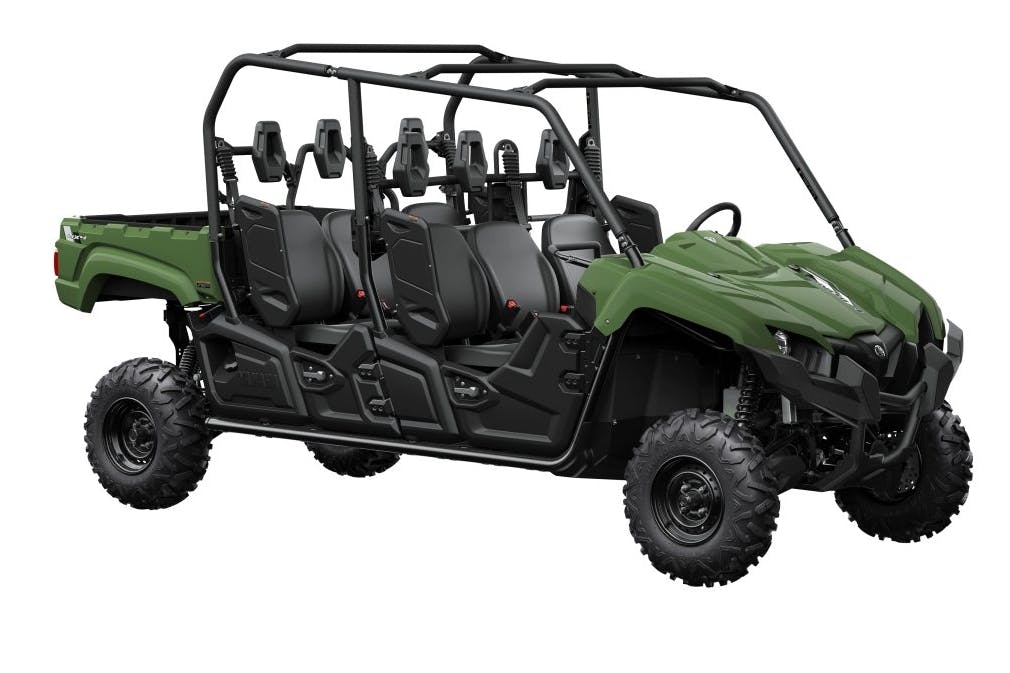
If hard work and minimal frills are your bag, you’re in the right place. Here’s everything you need to know about the 2025 Yamaha Viking VI.
How much power does it make?
Yamaha is mum about the Viking VI’s power and torque, and there’s good reason for that. This full-length workhorse is powered by a 686cc single, and its modest output might turn some buyers off.
Granted, that’s a liquid-cooled single we’re talking about, and one that’s tuned to provide maximum torque across the broadest rev range possible. Combine that with 4WD, a locking differential, and a low gear, and you’ve got a packmule of a utility rig that’ll climb damn near anything under load.
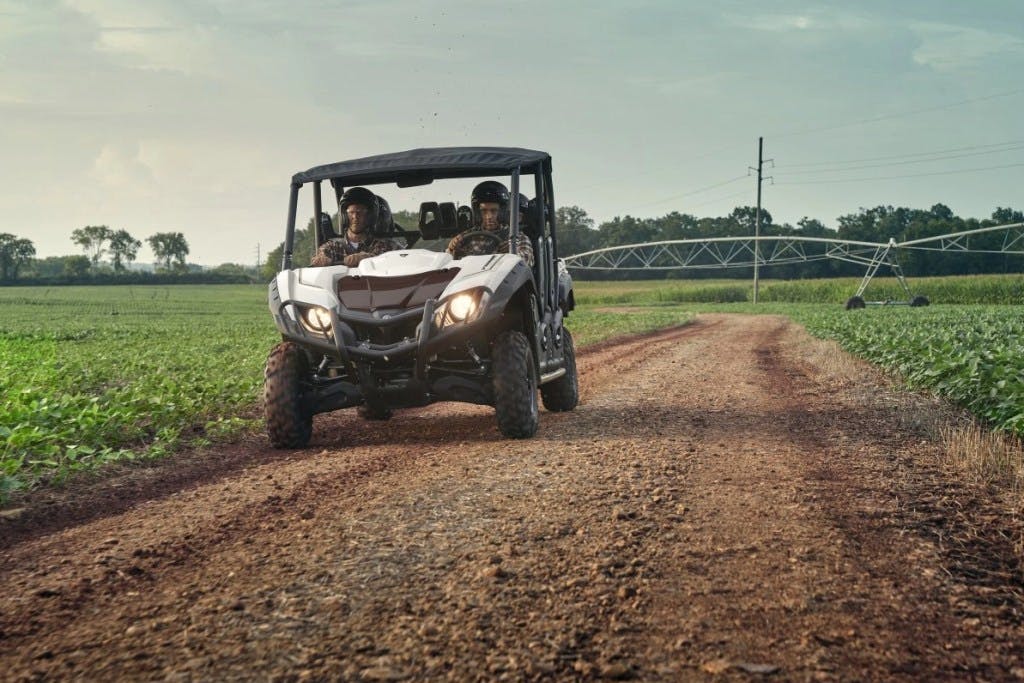
What makes it special?
As the name suggests, the Viking VI’s main claim to fame is that it has six individual seats, each with its own bolstered back support, headrest, and seatbelt. Yamaha also goes a step further by slightly staggering the middle seat back in each row to help maximize shoulder room for every occupant.
Out right reliability is the other major feather in the Viking VI’s cap. The liquid-cooled single, combined with Yamaha’s insanely tough Ultramatic transmission, holds up to years of constant use and abuse with zero complaints and minimal maintenance.
Yamaha’s now legendary 10-year CVT belt guarantee further solidifies the Viking VI as a no-fuss workhorse. This program was launched back in 2019, and no other manufacturer has been able to match it.
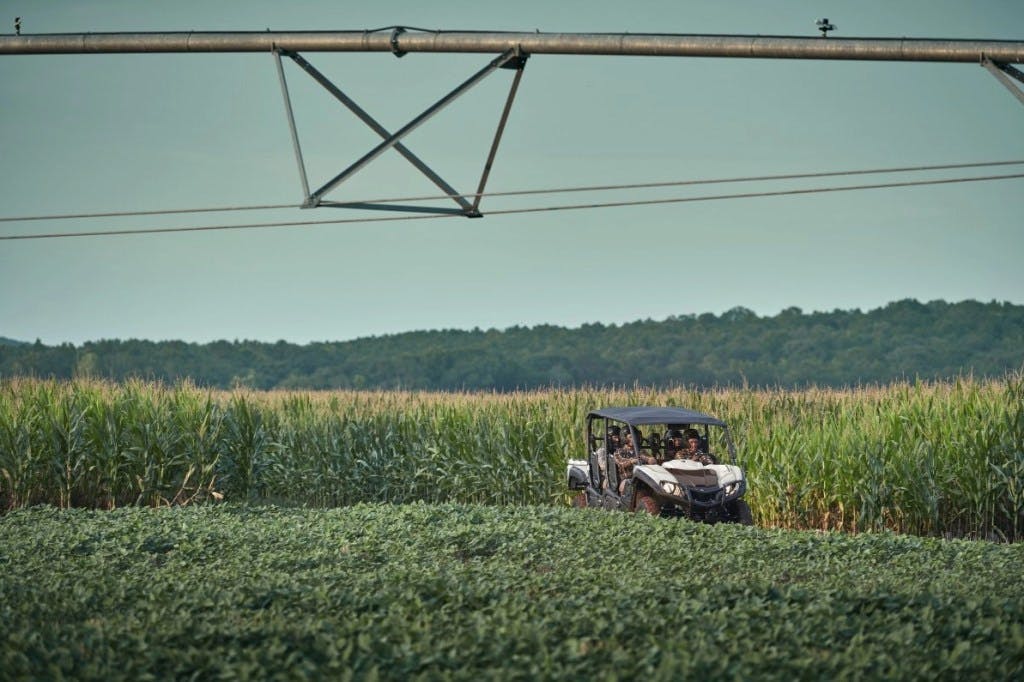
Why do I want it?
The Viking VI’s main appeal is its proven reliability. That single cylinder engine may not be particularly quick, but it’s gonna start every time, do what you need it to do, and require minimal maintenance. It’s also easy to access and wrench on, for folks who prefer to DIY.
The same goes for the Viking VI’s Ultramatic transmission. Yamaha’s legendary 10-year belt warranty is unrivaled in the industry, and as many owners will gladly tell you, they will, in fact, go the distance. Not having to worry about the single most common failure point in most side by sides is a great feeling, and one worth paying for.
Last but not least, the Viking VI is no slouch on the work front. Even in its six-seat configuration, the Viking is still rated to haul 600 pounds in the dump bed, and tow a full 1,500 pounds from its standard 2-inch receiver.
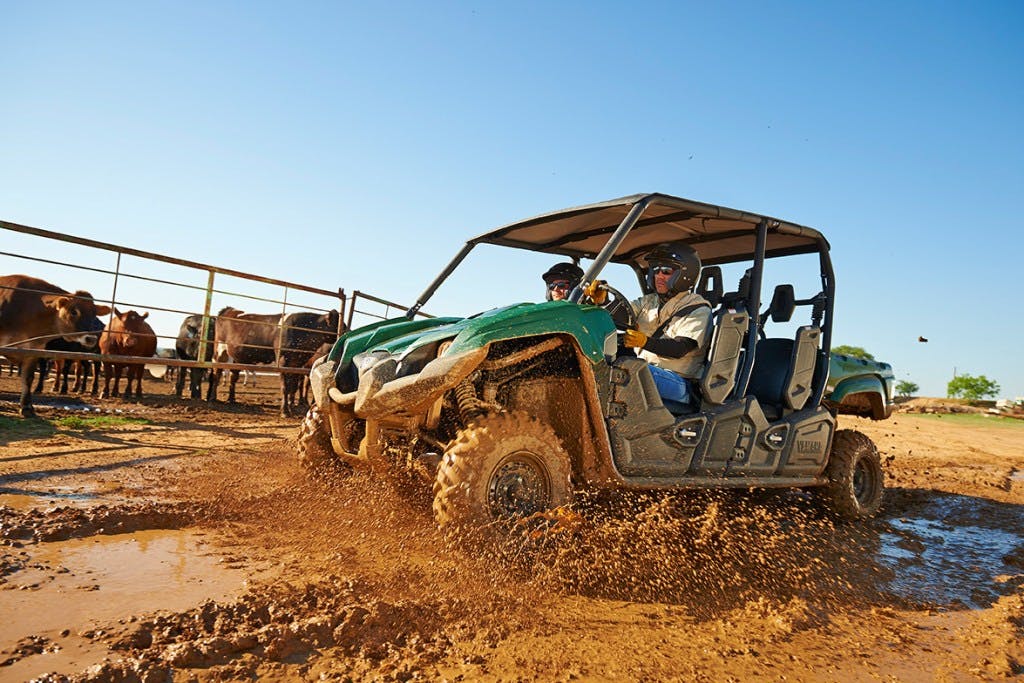
Why don’t I want it?
For starters, the Viking VI’s single-cylinder engine may be adequate, but it’s also vastly outgunned by a handful of competitors in this segment, especially if you don’t mind seating for four rather than six. More is more, as they say, and most manufacturers build a comparable utility offering with a two or three cylinder engine.
The Viking VI also isn’t necessarily the value proposition it used to be five years ago. The price for a base model has creeped up to over $16,500, which puts it in the running with much more modern and capable rigs from brands like Polaris and Kawasaki.
It’s also worth noting that while there are technically six seperate seats onboard the Viking VI, at 61.8 inches wide, it’s actually got less spacious door-to-door than many of its four seat (or bench seat) competitors. The unique offset layout of the seats may make the Viking VI the most feasible rig for actually seating six adults (and the legroom is excellent all-around), but most will still prefer to use it as an extra roomy four-seater.
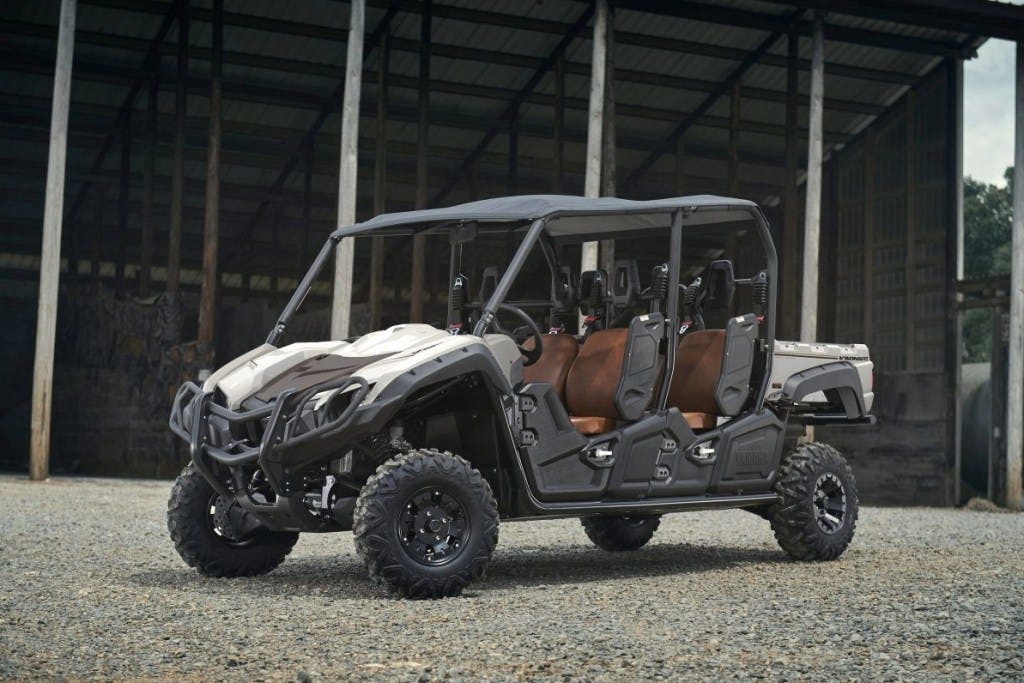
What trim do I want?
You’ve only got two trim options for the Viking VI: the base model, and the up-spec Ranch Edition. As you’d probably expect, the Ranch Edition is the “Cowboy Cadillac” of the two, and comes at a $1,300 premium over the standard model.
For your money, you’re getting upgraded to slick paint, a matching interior, aluminum wheels, a cloth sun top, and a nice beefy brushguard. Yamaha also throws in a great rearview mirror, overfenders on all four corners, additional under-seat storage, and a rear grab bar for the price.
That’s well worth the added cost as far as we’re concerned. If you could care less about all the above (or prefer to build your rig your way), however, the base model is mechanically identical to the Ranch Edition, and will do the exact same amount of work.
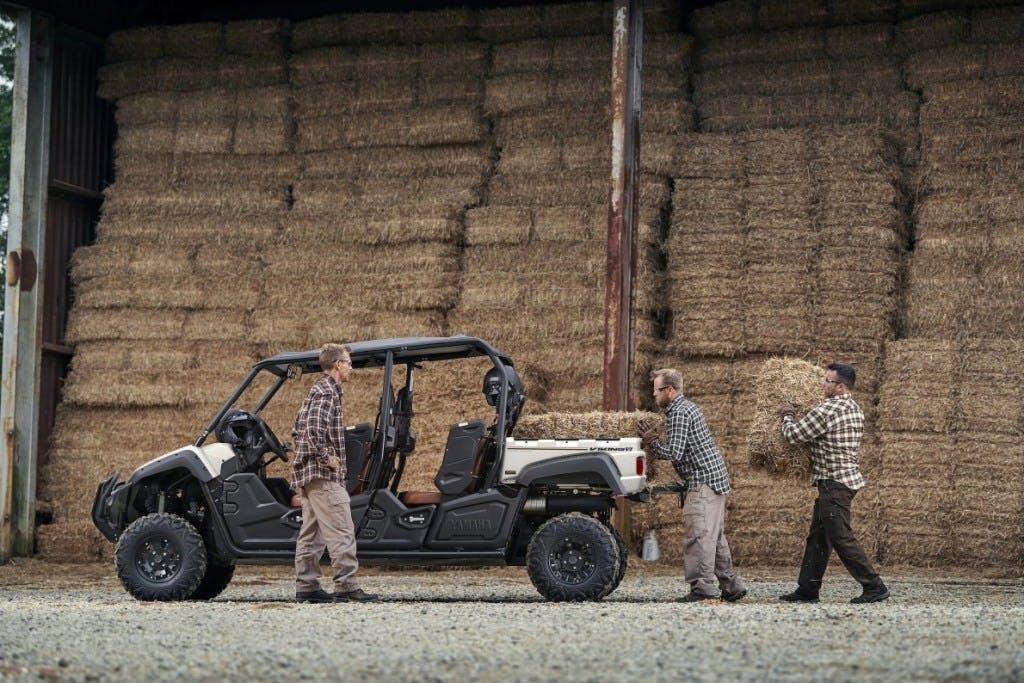
If I like this… what else should I look at?
Kawasaki’s Mule Pro-FXT 820 is a tough competitor to ignore with more power, more versatility, and improved capability in both towing and hauling. The same goes for Polaris’ latest Ranger Crew 1000, which adds capability and some recreational potential to the mix.
2025 Yamaha Viking VI Specs
Length: 153.5 in.
Width: 61.8 in.
Height: 76.6 in.
Wheelbase: 115.6 in.
Claimed Wet Weight: 1,695 lbs
Engine: Liquid-cooled SOHC single
Displacement: 686cc
Transmission: Ultramatic V-belt with all-wheel engine braking; L, H, N, R
Claimed Power: N/A
Claimed Torque: N/A
Fuel System: EFI
Steering: EPS
Drivetrain: On-Command; 3-way locking differential; 2WD, 4WD, locked 4WD; shaft drive
Front Suspension: Independent double wishbone; 8.1-in travel
Rear Suspension: Independent double wishbone with anti-sway bar; 8.1-in travel
Front Brakes: Dual hydraulic disc
Rear Brakes: Dual hydraulic disc
Wheels F/R: 12 in.; steel
Tires F/R: AT25; 8-12/10-12
Bed Capacity: 600 lbs
Towing Capacity: 1,500 lbs.
Seating Capacity: 6
Ground Clearance: 11.4 in.
Fuel Capacity: 9.7 gal
